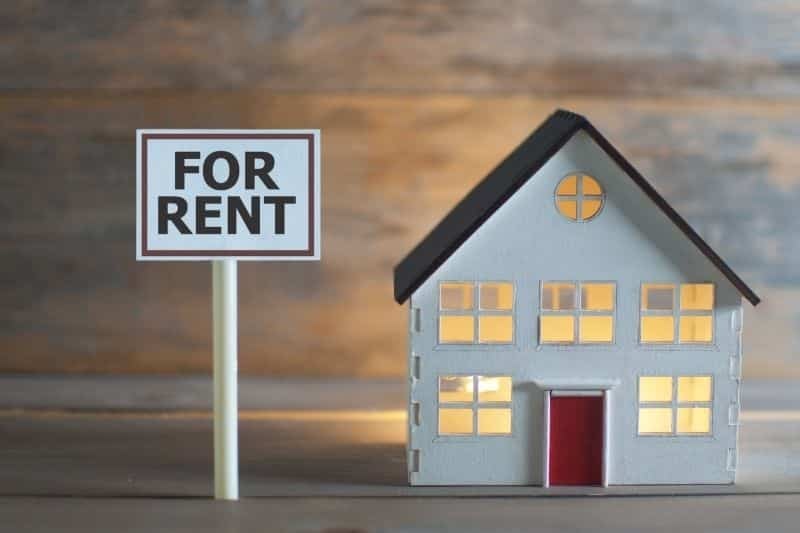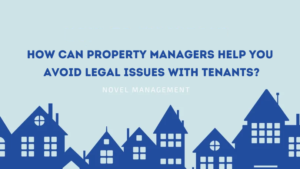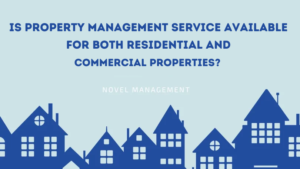Miami is one of the most popular destinations in the United States, known for its beautiful beaches, vibrant culture, and thriving nightlife. As a result, it is also a highly desirable location for renters and homeowners alike. If you are a landlord or property owner in Miami, setting rent prices can be a daunting task as there are many factors to consider.
However, with some research and understanding of the local market, you can ensure that your rental property is priced competitively while still generating a profit. In this guide, we will explore some key considerations for setting rent prices in Miami and provide tips on how to find the right balance between profitability and affordability for your tenants.
Why Is Setting Rent Prices Important?
Setting the right rent price is crucial for any landlord or property owner in Miami. This is because overpricing can lead to a lack of interest from potential tenants, resulting in longer vacancies and lower profits. On the other hand, underpricing can leave money on the table and potentially attract less desirable tenants.
Moreover, setting rent prices also impacts your relationship with your tenants. If they feel like they are paying too much for their rental unit, it may strain the landlord-tenant dynamic and lead to issues such as late payments or disputes.
Additionally, keeping up with market trends and setting competitive rent prices can also help retain long-term tenants. If they feel like they are getting a fair deal, they will be more likely to renew their lease and continue renting from you.

Factors to Consider When Setting Rent Prices
When determining rent prices in Miami, there are several factors that you should take into consideration. These include:
Location
The location of your rental property is one of the most significant factors in determining its rent price. In Miami, areas such as Brickell, South Beach, and Coral Gables are highly sought after due to their proximity to major attractions, employment hubs, and vibrant nightlife.
Properties in these neighborhoods typically command higher rental prices fl compare to those in less popular or more suburban areas. Additionally, the safety and overall desirability of a neighborhood can greatly influence how much tenants are willing to pay.
Access to public transportation, schools, shopping centers, and parks are other critical aspects that enhance a location’s appeal. By thoroughly evaluating the strengths and weaknesses of your property’s location, you can set a rent price that maximizes both occupancy and profitability.
Property type and amenities
The type and condition of your property, as well as the amenities it offers, can also impact rent prices. For example, a newly renovated apartment with modern appliances and on-site laundry facilities may command a higher rent than an older unit without these features.
Similarly, properties with amenities such as a pool, gym, or parking garage may be more attractive to potential tenants and justify a higher rent price. It is essential to consider the age and condition of your property along with any unique selling points when setting rent prices.
Plus, keep in mind that certain amenities may be more desirable to different demographics. For example, families may prioritize access to good schools and nearby parks while young professionals may value a location close to their workplace or social hotspots.
Local market trends
Staying updated on the local rental market trends is crucial for setting competitive rent prices in Miami. Factors such as supply and demand, vacancy rates, and average rental prices in your area can significantly impact how much tenants are willing to pay.
For instance, if there is a high demand for rental properties in your neighborhood with very few vacancies, you may be able to set a higher rent price. On the other hand, if there is an oversupply of similar properties or a decline in market demand, you may need to adjust your rent price accordingly.
Maintenance and operating costs
When determining rent prices, it is crucial to factor in the maintenance and operating costs associated with your rental property. These may include mortgage payments, property taxes, insurance, utilities, and routine maintenance expenses.
By calculating these costs and incorporating them into your rent price, you can ensure that your rental property generates a profit while still being affordable for tenants.
Target demographic
Understanding the demographics of potential tenants in your area can also inform your rent pricing strategy. For example, if you are targeting young professionals who value convenience and modern amenities, you may be able to charge a higher rent price.
On the other hand, if your property is located in an area with a large student population, you may need to set a more affordable rent price to attract tenants and remain competitive.
Comparable rental properties
Lastly, it is essential to research and compare the rent prices of similar properties in your area. This will give you an idea of what other landlords are charging and help you determine a fair and competitive rent price for your own property.
You can do this by searching online rental listings or working with a local real estate agent who has access to market data. Keep in mind that comparable properties should have similar features, location, and amenities to provide an accurate comparison.
By considering all of these factors, you can set a rent price that balances the needs of your tenants with your own financial goals as a landlord or property owner in Miami. Continuously monitoring market trends and adjusting your prices accordingly will help ensure the success of your rental business in the long run.
Average Rent Prices in Miami
As of 2024, the average rent price for a one-bedroom apartment in Miami is approximately $1,600 per month. This is higher than the national average of $1,200 per month.
However, rent prices can vary significantly depending on location and property type. For instance, a one-bedroom apartment in Brickell may cost upwards of $2,000 per month, while the same size unit in a more suburban area such as Kendall may be around $1,300.
Additionally, rental prices tend to increase during peak seasons and decrease during slower periods. It is essential to keep an eye on market trends and adjust rent prices accordingly to stay competitive.
Factors such as proximity to public transportation, employment hubs, and popular attractions can also impact rental prices in certain areas. It is crucial to thoroughly research the local market and compare your property’s features and location with other similar properties to set a fair rent price.

Does location really matter?
In short, yes, location does matter when it comes to rental prices. As mentioned earlier, properties located in popular and desirable neighborhoods tend to command higher rent prices compared to those in less desirable or suburban areas.
However, the amount of impact that location has on rent prices can vary depending on individual factors such as property type, amenities, and competition. For example, a newly renovated apartment with modern amenities may still be able to charge a premium rent price even if it is not located in the most sought-after neighborhood.
That being said, the overall appeal and convenience of a location can greatly influence a tenant’s decision to rent a property and justify a higher price. It is essential to consider location alongside other factors when setting rent prices for your property in Miami.
By understanding the local market trends, factoring in maintenance and operating costs, targeting the right demographic, and comparing with comparable rental properties, you can find the right balance between location and affordability for both yourself as a landlord and potential tenants.
Why A Property Manager can Help
Managing a rental property can be a time-consuming and complex task, especially for landlords with multiple properties or busy schedules. This is where a professional property manager can help alleviate the burden and ensure the success of your investment.
A property manager’s responsibilities may include finding and screening tenants, collecting rent payments, handling maintenance and repairs, and ensuring compliance with local laws and regulations. They also have extensive knowledge of the local rental market, allowing them to set competitive rent prices based on current trends.
Additionally, a property manager can handle any issues or disputes that may arise between tenants and landlords, saving you time and potential conflicts.
While hiring a property manager may come at an additional cost, their expertise and resources can ultimately lead to higher profits and better management of your rental property in Miami. Consider consulting with a reputable property management company to see how they can assist you in achieving your financial goals as a landlord.

Mistakes to Avoid
When setting rent prices for your rental property in Miami, it is important to avoid common mistakes that can impact your profitability and attract the wrong tenants. Here are a few things to keep in mind:
- Setting unrealistic rent prices: It may be tempting to charge high rents, but if they are not in line with market trends or comparable properties, you risk having longer vacancies and losing potential tenants. Plus, setting reasonable rent prices can help attract long-term and reliable tenants.
- Not factoring in operating costs: It is important to consider all expenses associated with your rental property, such as maintenance, utilities, property taxes, and insurance when setting rent prices. Failing to do so could result in financial strain and lower profitability.
- Ignoring market trends: The rental market can fluctuate depending on various factors such as seasonality and economic conditions. It is crucial to regularly monitor market trends and adjust rent prices accordingly to stay competitive.
- Not targeting the right demographic: Knowing your target audience and what they are looking for in a rental property can help you set appropriate rent prices and market your property effectively. For example, if your property is close to universities, consider targeting students and offering competitive rates.
- Skipping background checks on tenants: Screening potential tenants is crucial to ensure responsible and reliable tenants who will pay rent on time and take care of your property. Skipping this step could result in financial losses or legal issues down the line.
- Not seeking professional help: Managing a rental property can be overwhelming, especially for first-time landlords. Consider seeking guidance from a reputable property management company to ensure the success of your investment.
By avoiding these mistakes and being proactive in managing your property, you can maximize profitability and attract desirable tenants for your rental property in Miami.
FAQs
How do rent control measures affect rental price setting in Miami?
Rent control measures can impact how you set your rental price in Miami by limiting the amount you can increase rent annually. While Miami-Dade County doesn’t have strict rent control, it’s important to be aware of local regulations and any potential changes in legislation that might affect rental rates.
What factors should property managers consider when determining rental rates in Miami?
Property managers should consider several factors when determining rental rates in Miami, including fixed expenses such as mortgage payments, property taxes, and maintenance costs. Additionally, comparing your rental price to similar properties in Miami-Dade County and considering the average monthly income of your target tenants can help set competitive and fair rental rates.
How should a rent increase notice be handled in Miami-Dade County?
In Miami-Dade County, a rent increase notice should be provided to tenants well in advance of the increase taking effect. Typically, this notice period is 30 days, but it’s important to check local laws for specific requirements. Clear communication and providing a larger security deposit option can also help manage tenant expectations and maintain good relationships.
How can comparing rental prices in FL help set the right rent in Miami?
Comparing rental prices in FL, especially within Miami-Dade County, can provide valuable insights into the market rates for similar properties. This comparison helps property managers set a competitive rental price that aligns with local rental rates while ensuring it covers fixed expenses and aligns with the monthly income levels of potential tenants.
Why might property managers require a larger security deposit in Miami?
Property managers might require a larger security deposit in Miami to cover potential damages and ensure that the rental property is maintained properly. This can be especially important when setting rental rates that align with local market conditions and fixed expenses. A larger security deposit also provides additional security for property managers against any unforeseen expenses.
Conclusion
In conclusion, setting the right rent price for your rental property in Miami requires thorough research and consideration of various factors such as location, market trends, operating costs, and target demographic. It is also important to avoid common mistakes and seek professional help when needed to ensure the success of your investment.
By following these guidelines, you can attract reliable tenants and maximize profitability for your rental property in this competitive market. So, it’s crucial to keep an eye on market trends and adjust rent prices accordingly to stay competitive.
With proper planning and management, owning a rental property in Miami can be a lucrative investment opportunity. Remember to also keep your tenants happy and maintain your property to ensure long-term success.
Discover How to Optimize Your Rental Prices in Miami with Novel Management. Contact us today to enhance your property investment and experience the Novel difference!




